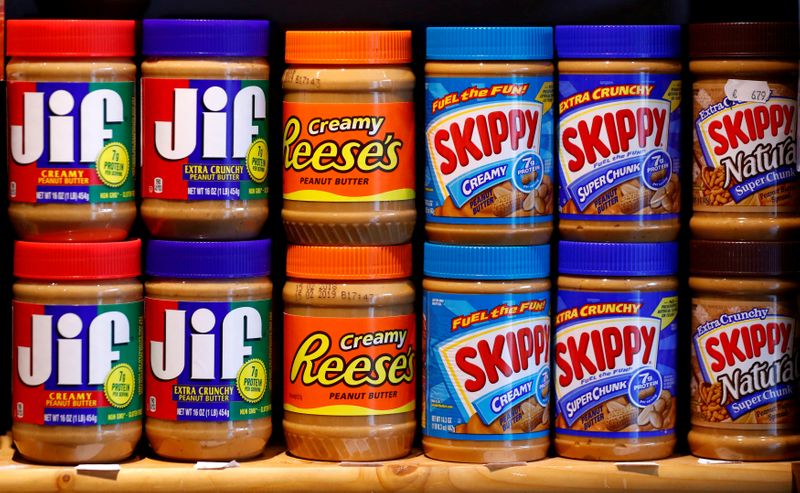(Reuters) – Consumers sticking close to home as COVID-19 cases spike around the world are reaching for more pantry staples like mayonnaise and peanut butter and are buying Roomba robot vacuum cleaners and computers.
As companies report quarterly earnings and look to the second half of the year, pandemic winners and losers are becoming more apparent. Companies that sell electronics, comfort food and other products for the home continue to benefit from quarantines and lockdowns.
“Being at home – or at least out of their normal routines – the majority of the day, consumers are embracing technologies that enhance their at-home lifestyle, whether through entertainment, or assistance with chores around the house,” said Daniel Binder, partner at Columbus Consulting, a firm that advises on the retail sector.
This week, electronics retailer Best Buy Co Inc <BBY.N> said its online sales jumped more than three-fold in the current quarter through July 18, while overall sales rose about 15%. And Roomba maker iRobot Corp <IRBT.O> flagged meaningful growth in demand for its robotic vacuums that can cost $800.
Roombas, which can speak more than a dozen languages including Chinese, automatically zip around carpets and floors sucking up crumbs, dirt and pet hair. Keeping a clean home has taken on greater prominence in the pandemic, Colin Angle, chief executive of iRobot, said in the company’s earnings release on Tuesday.
Shares of Best Buy, the Minneapolis-based retailer, rose to a record high of $99.42 on Wednesday, after the company reported robust sales of computers, tablets and appliances to homebound consumers and students. Almost all its stores had reopened to shoppers as of Wednesday.
“People see getting a Roomba to get their houses cleaner or upgrading to the latest iPhone as a means of getting back some sense of control in their lives,” said Dave Marcotte, senior vice president, Insights, at retail consulting and analytics company, Kantar.
UK-based home improvement retailer Kingfisher Plc <KGF.L> on Wednesday reported exceptionally strong demand for DIY and gardening products. Lockdowns drove a 21.6% jump in second-quarter same-store sales.
FEEL-GOOD FOODS
JM Smucker Co <SJM.N>, which makes Smucker’s jams, Jif peanut butter and pet food, raised its dividend in a time when many companies are slashing payouts to conserve cash. In June, Smucker said it continued to expect shoppers to eat more meals at home.
Global consumer products company Unilever Plc <ULVR.L> on Thursday noted strong sales of Breyers, Magnum and Klondike ice-cream, along with Hellmann’s mayonnaise and Knorr soups.
“We see no signs of North America slowing down,” the company’s chief executive officer, Alan Jope, told analysts.
A new wave of amateur bakers has led to a surge of more than 40% in sales of Hershey Co’s <HSY.N> chocolate chips and cocoa powder that are used in cakes, cookies and other desserts.
The chocolate maker said on Thursday it expects sales to accelerate in the coming months.
By contrast, jeans maker Levi Strauss & Co <LEVI.N> said on Tuesday its executives would continue to work with reduced salaries through the end of August, citing the economic hit from COVID-19.
Levis, hurt by store closures, said on July 7 that sales tumbled 62% in the second quarter.
(Reporting by Uday Sampath Kumar in Bengaluru; Additional reporting and writing by Anna Driver in New York; Editing by Matthew Lewis)



















